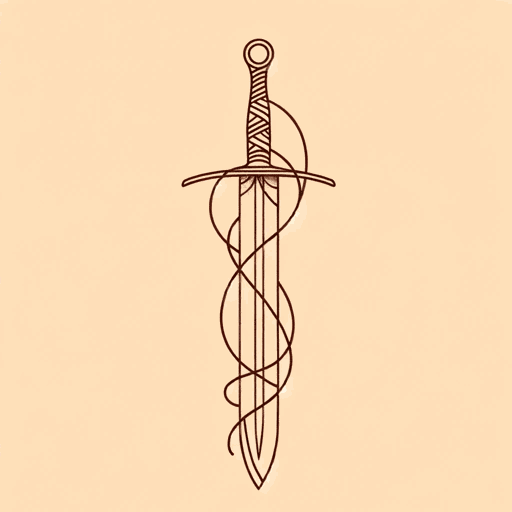50 pages • 1 hour read
Bernard CornwellThe Winter King
Fiction | Novel | Adult | Published in 1995A modern alternative to SparkNotes and CliffsNotes, SuperSummary offers high-quality Study Guides with detailed chapter summaries and analysis of major themes, characters, and more.
Important Quotes
“These are the tales of the land we call Lloegyr, which means the Lost Lands, the country that was once ours but which our enemies now call England. These are the tales of Arthur, the Warlord, the King that Never Was, the Enemy of God and, may the living Christ and Bishop Sansum forgive me, the best man I ever knew. How I have wept for Arthur.”
(Part 1, Page 1)
The Winter King opens on an indisputably tragic note. Derfel is the last voice of a dead civilization, of a Britain before the victory of both the Saxons and Christianity. Derfel has only lived so long by assuming the life of a monk, but for all the excitement of the story to follow, the first thing he tells his readers is that the hero will die and everything he stands for will eventually be laid to waste.
“I was crouching near the High King and I saw tears show at his eyes that were gazing toward the sky. ‘An heir,’ Uther said in a tone of wonder as though he had not really dared to hope that the Gods would favor him. He dabbed at the tears with a fur-gloved hand. ‘the kingdom is safe, Bedwin,’ he said. ‘Praise God, High Lord, it is safe,’ Bedwin agreed.”
(Part 1, Page 12)
The birth of Mordred initiates the conflict between Paganism and Christianity that will animate much of the story. As the Christian Norwenna goes into labor, priests and Druids each perform their rituals, with the Christians upset when the pagans seem to have the greater effect, and the pagans upset with the many bag omens that surround Mordred’s birth. The one thing they can all agree on is the value of a male child in avoiding a succession crisis in the event of Uther’s death, even though it will be years before the young boy can exercise real control.


